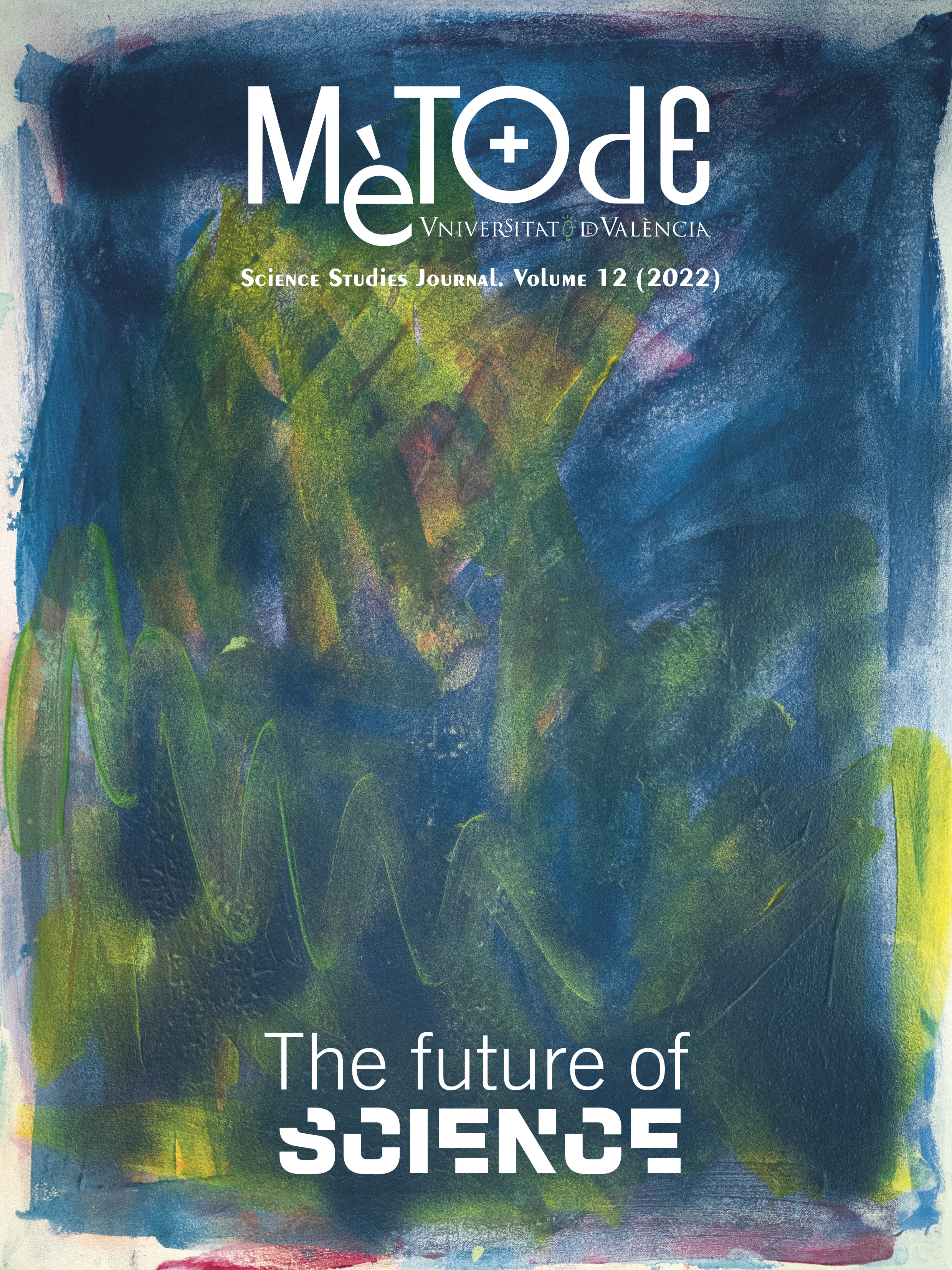El canvi climàtic no és igual per a tots: Contribucions des dels estudis feministes
DOI:
https://doi.org/10.7203/metode.12.20508Paraules clau:
adaptació al canvi climàtic, maladaptació, investigació feminista, interseccionalitat, vulnerabilitat contextual Resum
Resum
Els impactes del canvi climàtic no són homogenis per a totes les persones; no tots els grups socials es veuen afectats de la mateixa manera. Això és degut a l’existència d’una vulnerabilitat diferencial i contextual que amb molta freqüència està relacionada amb la desigualtat. En aquest sentit, el gènere és un eix clau de desigualtat relacionat amb altres sistemes de poder i marginació, que provoca diversos graus de vulnerabilitat i capacitat d’adaptació al canvi climàtic. Per tant, integrar una perspectiva de gènere en la investigació sobre el canvi climàtic pot ajudar-nos a examinar les estructures i relacions de poder. En aquest article s’aporten diversos exemples d’impactes diferencials del canvi climàtic i d’estudis feministes que visibilitzen les causes subjacents de la vulnerabilitat, així com la capacitat d’agència dels grups marginalitzats en la proposta d’alternatives.
 Descàrregues
Descàrregues
 Referències
Referències
Andersson, E., & Gabrielsson, S. (2012). ‘Because of poverty, we had to come together’: Collective action for improved food security in rural Kenya and Uganda. International Journal of Agricultural Sustainability, 10(3), 245–262. https://doi.org/10.1080/14735903.2012.666029
Arora-Jonsson, S. (2011). Virtue and vulnerability: Discourses on women, gender and climate change. Global Environmental Change, 21(2), 744–751. https://doi.org/10.1016/j.gloenvcha.2011.01.005
Atteridge, A., & Remling, E. (2017). Is adaptation reducing vulnerability or redistributing it? Wiley Interdisciplinary Reviews: Climate Change, 9(1), e500. https://doi.org/10.1002/wcc.500
Benjaminsen, G., & Kaarhus, R. (2018). Commodification of forest carbon: REDD+ and socially embedded forest practices in Zanzibar. Geoforum, 93, 48–56. https://doi.org/10.1016/j.geoforum.2018.04.021
Bradshaw, S., & Linneker, B. (2009). Gender perspectives on disaster reconstruction in Nicaragua: Reconstructing roles and relations? In E. Enarson & D. P. G. Chakrabarti (Eds.), Women, gender and disaster: Global issues and initiatives (1a edición, pp. 75–88). SAGE Publications Pvt. Ltd. http://doi.org/10.4135/9788132108078.n6
Carter, T. R., Fronzek, S., Inkinen, A., Lahtinen, I., Lahtinen, M., Mela, H., O’Brien, K. L., Rosentrater, L. D., Ruuhela, R., Simonsson, L., & Terama, E. (2014). Characterising vulnerability of the elderly to climate change in the Nordic region. Regional Environmental Change, 16(1), 43–58. https://doi.org/10.1007/s10113-014-0688-7
Carvalho, L. M. D., & Bógus, C. M. (2020). Gender and social justice in urban agriculture: The network of agroecological and peripheral female urban farmers from São Paulo. Social Sciences, 9(8), 127. https://doi.org/10.3390/socsci9080127
Djoudi, H., & Brockhaus, M. (2011). Is adaptation to climate change gender neutral? Lessons from communities dependent on livestock and forests in northern Mali. International Forestry Review, 13(2), 123–135. https://doi.org/10.1505/146554811797406606
Djoudi, H., Locatelli, B., Vaast, C., Asher, K., Brockhaus, M., & Basnett Sijapati, B. (2016). Beyond dichotomies: Gender and intersecting inequalities in climate change studies. Ambio, 45(S3), 248–262. https://doi.org/10.1007/s13280-016-0825-2
Eriksen, S. H., Nightingale, A. J., & Eakin, H. (2015). Reframing adaptation: The political nature of climate change adaptation. Global Environmental Change, 35, 523–533. https://doi.org/10.1016/j.gloenvcha.2015.09.014
Gay-Antaki, M. (2016). “Now We Have Equality”: A feminist political ecology analysis of carbon markets in Oaxaca, Mexico. Journal of Latin American Geography, 15(3), 49–66. https://doi.org/10.1353/lag.2016.0030
Laska, S., & Morrow, B. H. (2006). Social vulnerabilities and hurricane Katrina: An unnatural disaster in New Orleans. Marine Technology Society Journal, 40(4), 16–26. https://doi.org/10.4031/002533206787353123
Mustafa, D., & Wrathall, D. (2011). Indus basin floods of 2010: Souring of a Faustian bargain? Water Alternatives, 4(1), 72–85. http://www.water-alternatives.org/index.php/volume4/v4issue1/127-a4-1-5/file
Nightingale, A. J. (2011). Bounding difference: Intersectionality and the material production of gender, caste, class and environment in Nepal. Geoforum, 42(2), 153–162. https://doi.org/10.1016/j.geoforum.2010.03.004
Oliver, B. (2016). “The Earth gives us so much”: Agroecology and rural women’s leadership in Uruguay. Culture, Agriculture, Food and Environment, 38(1), 38–47. https://doi.org/10.1111/cuag.12064
Paprocki, K. (2018). Threatening dystopias: Development and adaptation regimes in Bangladesh. Annals of the American Association of Geographers, 108(4), 955–973. https://doi.org/10.1080/24694452.2017.1406330
Röhr, U. (2006). Gender and climate change. Tiempo, 59, 3–7. https://www.preventionweb.net/files/9739_tiempo59low.pdf
United Nations Viet Nam & Oxfam Viet Nam. (2009). Responding to climate change in Vietnam. Opportunities for improving gender equality. https://ciaotest.cc.columbia.edu/wps/oxfam/0018939/f_0018939_16199.pdf
Vincent, K. E., Tschakert, P., Barnett, J., Rivera-Ferre, M. G., & Woodward, A. (2014). Cross-chapter box on gender and climate change. In C. B. Field, V. R. Barros, D. J. Dokken, K. J. Mach, M. D. Mastrandrea, T. E. Bilir, M. Chatterjee, K. L. Ebi, Y. O. Estrada, R. C. Genova, B. Girma, E. S. Kissel, A. N. Levy, S. MacCracken, P. R. Mastrandrea, & L. L. White (Eds.), Climate change 2014: Impacts, adaptation, and vulnerability. Part A: Global and sectoral aspects. Contribution of Working Group II to the Fifth Assessment Report of the Intergovernmental Panel on Climate Change (pp. 105–107). Cambridge University Press.
Wekesah, F. M., Mutua, E. N., & Izugbara, C. O. (2019). Gender and conservation agriculture in sub-Saharan Africa: A systematic review. International Journal of Agricultural Sustainability, 17(1), 78–91. https://doi.org/10.1080/14735903.2019.1567245
Westholm, L. (2016). Fruits from the forest and the fields: Forest conservation policies and intersecting social inequalities in Burkina Faso’s REDD+ program. International Forestry Review, 18(4), 511–521. https://doi.org/10.1505/146554816820127578
Descàrregues
Publicades
Com citar
-
Resum2276
-
PDF 952
Número
Secció
Llicència
![]()
Tots els documents inclosos en OJS són d'accés lliure i propietat dels seus autors.
Els autors que publiquen en aquesta revista estan d'acord amb els següents termes:
- Els autors conserven els drets d'autor i garanteixen a la revista el dret a la primera publicació del treball, llicenciat baix una llicència de Reconeixement-NoComercial-SenseObraDerivada 4.0 Internacional de Creative Commons, que permet a altres compartir el treball amb un reconeixement de l'autoria del treball i citant la publicació inicial en aquesta revista.
- Es permet i s'anima els autors a difondre la versió definitiva dels seus treballs electrònicament a través de pàgines personals i institucionals (repositoris institucionals, pàgines web personals o perfils a xarxes professionals o acadèmiques) una vegada publicat el treball.





